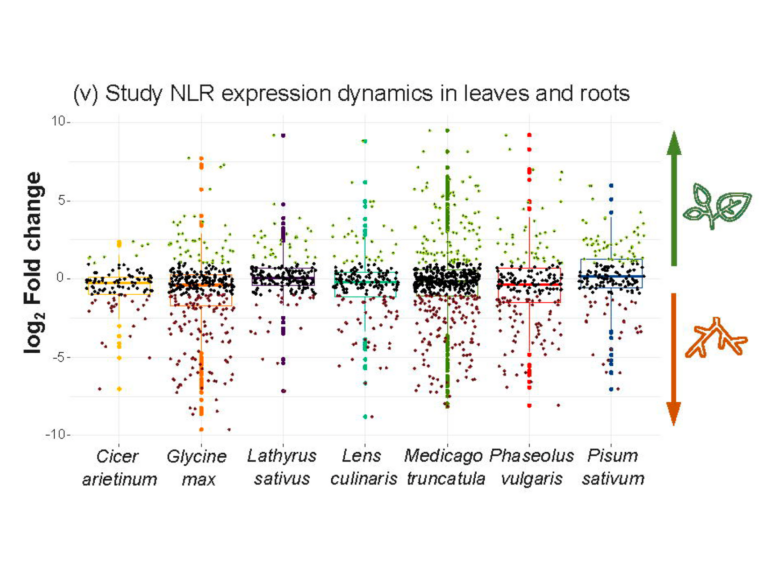Nucleotide-binding leucine-rich repeat network underlies nonhost resistance of pepper against the Irish potato famine pathogen Phytophthora infestans
Nonhost resistance (NHR) is a robust plant immune response against non-adapted pathogens. A number of nucleotide-binding leucine-rich repeat (NLR) proteins that recognize non-adapted pathogens have been identified, although the underlying molecular mechanisms driving robustness of NHR are still unknown. Here, we screened 57 effectors of the potato late blight pathogen Phytophthora infestans in nonhost pepper (Capsicum annuum) to identify avirulence effector candidates. Selected effectors were tested against 436 genome-wide cloned pepper NLRs, and we identified multiple functional NLRs that recognize P. infestans effectors and confer disease resistance in the Nicotiana benthamiana as a surrogate system. The identified NLRs were homologous to known NLRs derived from wild potatoes that recognize P. infestans effectors such as Avr2, Avrblb1, Avrblb2, and Avrvnt1. The identified CaRpi-blb2 is a homologue of Rpi-blb2, recognizes Avrblb2 family effectors, exhibits feature of lineage-specifically evolved gene in microsynteny and phylogenetic analyses, and requires pepper-specific NRC (NLR required for cell death)-type helper NLR for proper function. Moreover, CaRpi-blb2-mediated hypersensitive response and blight resistance were more tolerant to suppression by the PITG_15 278 than those mediated by Rpi-blb2. Combined results indicate that pepper has stacked multiple NLRs recognizing effectors of non-adapted P. infestans, and these NLRs could be more tolerant to pathogen-mediated immune suppression than NLRs derived from the host plants. Our study suggests that NLRs derived from nonhost plants have potential as untapped resources to develop crops with durable resistance against fast-evolving pathogens by stacking the network of nonhost NLRs into susceptible host plants.


